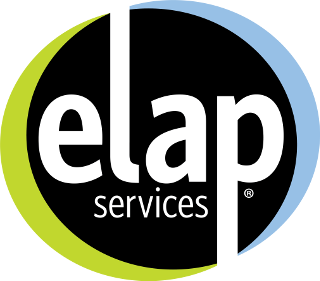Informed brokers can offer sound counsel about reference-based pricing as a cost-containment solution.
It’s not a new story — insurance premiums continue to rise, and across the country, employers are reaching their breaking point. In fact, premiums for family coverage have increased by 55 percent since 2007, and business owners often bear much of this financial burden.
Employers are getting creative in an effort to reduce their healthcare costs, including looking for alternatives to the typical PPO plan. Many are choosing self-insurance coupled with reference-based pricing, which is the assessment and payment of medical claims based on Medicare reimbursement data or the provider’s self-reported cost to deliver the service.
Reference-based pricing, also referred to as metric-based pricing, sometimes gets a bad rap from different players in the insurance industry due to outdated notions about this type of health plan model. The truth is that the cost savings and other positives are undeniable: businesses typically save up to 30 percent off their total healthcare spend.
In the constantly evolving world of healthcare, it’s important to understand how reference-based pricing has advanced over the past several years and the reasons why many self-funded employers are turning to reference-based pricing as a sustainable healthcare solution. Below are some common misconceptions and the facts you should know as an informed insurance or benefits professional.
Misconception: Providers will turn away patients on reference-based pricing plans.
Because self-funded employers with reference-based pricing select a reasonable level of reimbursement with a fair profit margin for medical services, the majority of hospitals and facilities accept payments every day throughout the U.S. A common misconception about reference-based pricing is that facilities will turn away patients who have this plan, but it is illegal to deny medical services to any patient in an emergency under the Emergency Medical Treatment and Active Labor Act (EMTALA). In the rare instance where admission is denied for other types of care, skilled reference-based partners can resolve the situation on a case-by-case basis with the facility.
Fair payments begin with a line by line, in-depth assessment of each medical procedure’s cost by a quality reference-based pricing partner who ensures facilities are reimbursed quickly and properly. Further, the right partner will recommend reference-based pricing as a solution to companies that are the right fit, and in the right market, to participate.
When choosing a healthcare solution, brokers and employers should ensure the reference-based pricing partner is experienced, knowledgeable about the specific market, and focused on building relationships with hospital systems — encouraging collaboration rather than confrontation. Essentially, the “reference point” needs to consider the provider cost and allow for a fair margin above that cost.
Misconception: Balance billing only happens with reference-based pricing.
Another reference-based pricing misunderstanding is that plan members will be responsible for paying large balance bills after receiving care. With an experienced reference-based pricing solutions provider, the chance of balancing billing for plan members is greatly minimized, because facilities receive a fair reimbursement that they willingly accept.
If a payment is not accepted, an expert reference-based pricing solution will assist plan members with balance bills every step of the way and not leave them to resolve the issue on their own. The truth is that balance billing is common across healthcare and most notably occurs with out-of-network claims in traditional PPO health plans, and these members do not have anyone to advocate for or support them. In fact, nearly one-third of privately insured Americans have received a surprise medical bill in the past two years when their health plan paid less than expected. In addition, the number of Americans who don’t have the means to pay unexpected medical bills or are at risk for bankruptcy as a result of uncontrollable healthcare expenses is on the rise.
In the case of a payment dispute or balance bill on a reference-based pricing plan, a good partner is dedicated to supporting the plan member and advocating on their behalf with minimal disruption, resulting in satisfaction for all parties involved.
Misconception: Employers with reference-based pricing are destined for legal action.
It bears repeating that most facilities accept payments when the reimbursement amount is fair and paid on time. In the rare instance a facility does not accept payment, there are many steps before the threat of litigation.
Often, when a local company meets with a hospital system to discuss reimbursement conflict, there are multiple opportunities for positive results for each party. There are significant advantages for both the health systems and the employers to resolve the dispute by working together and setting precedent for future dealings.
If a resolution is not reached, it is vital that an employer is partnered with a solutions provider with strong patient advocacy and legal expertise, ensuring all members and the employer are protected against aggressive billing, collections and potential legal action.
Reference-based pricing can be missing puzzle piece.
It is vital that brokers, employers and other industry professionals are armed with the facts about reference-based pricing. Employers should not overlook its many benefits, and industry professionals should know when to recommend this viable solution. Businesses that implement reference-based pricing can use their savings towards growing their business or putting dollars back into the paychecks of their employees.
Brokers that offer reference-based pricing can remain in the center of the healthcare benefits discussion and showcase their knowledge to clients. And both employers and brokers should choose an experienced reference-based pricing partner to ensure not only the greatest cost savings but the smoothest experience possible for the employer, employees and provider once the plan is implemented.
Blog
Explore the latest insights, articles and thought leadership from the health insurance experts at ELAP Services.







